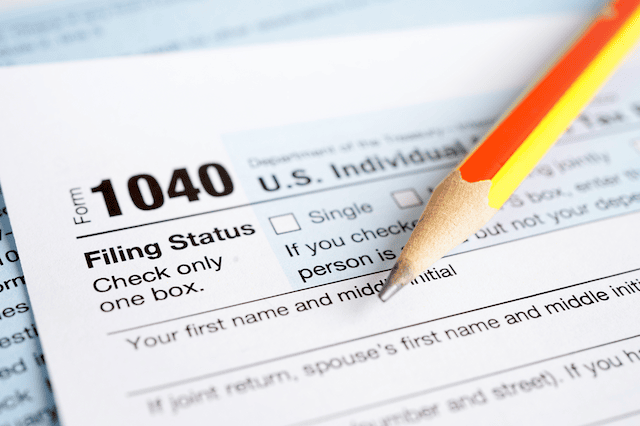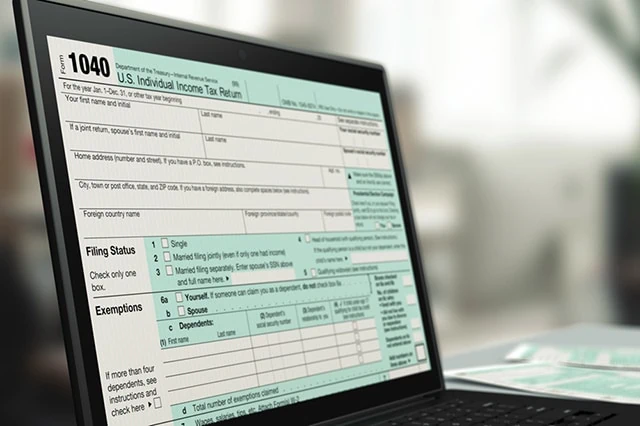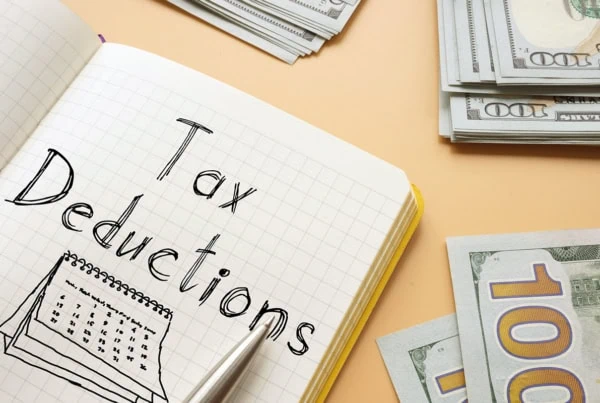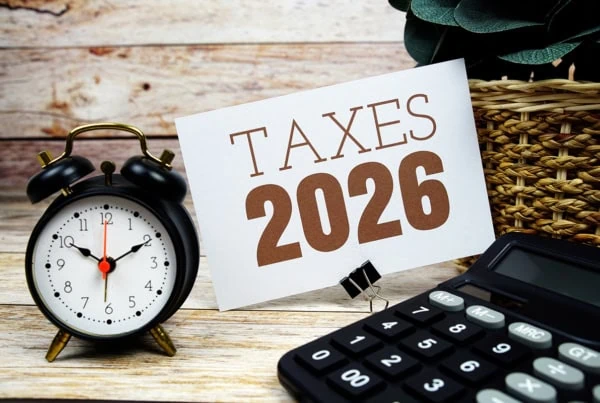There’s no minimum age for filing a federal income tax return. That means teens, tweens, and even younger children can be required to file taxes if they have income in any given year.
When parents hear this, the same question naturally pops to mind: “Does my child have to file a tax return?” Well, for a dependent child, the answer typically turns on the amount and nature of your child’s income for the tax year.
It’s also important to note that the rules for dependent children differ from the tax filing requirements for most adults. And, under certain circumstances, you might be able to include your child’s taxable income on your tax return instead of having your child file a separate return. Plus, if your child’s unearned income exceeds a certain amount, some of that income could be taxed at the same tax rate you’re paying, and a special additional tax could be imposed.
To make sure you understand the special tax rules for children, I’ll walk you through the process of determining whether your child needs to file a 2023 federal tax return this year (or should anyway). I’ll also help you understand how your child’s income will be taxed if a return is required.
Like everything else with taxes, sorting through all the rules, requirements, and exceptions can seem overwhelming for both parents and children—but it doesn’t have to be.
Related: How Much to Save for Your Kid’s College [3 Tax-Smart Options]
Is Your Child a “Dependent”?

For purposes of this discussion, we’re only talking about “dependent” children. Generally, your child will be treated as your dependent for federal income tax purposes if five tests are satisfied. However, your child can also be treated as your dependent if he or she is a “qualifying relative.”
Let’s take a quick look at the five tests a child must satisfy to be a “dependent” child. I’ll also cover the special rule for qualifying relatives, and who can claim a child as a dependent when the child’s parents are divorced or separated.
1. Relationship Test for a “Dependent” Child
To satisfy the relationship test, your child must be either:
- Your biological or adopted son or daughter
- A stepchild
- A foster child
- The descendant of your biological, step, or foster child (e.g., your grandchild)
- The descendant of your biological, step, or half brother or sister (e.g., your niece or nephew)
An adopted child is treated as a biological child, and includes a child lawfully placed with you for legal adoption.
2. Age Test for a “Dependent” Child
Under the age test, your child must be either:
- 18 or younger at the end of the tax year
- 23 or younger if a full-time student at the end of the tax year
- Any age if permanently and totally disabled at any time during the tax year.
For the first two requirements above, your child must also be younger than you (and your spouse if you’re filing a joint return).
Related: Child Tax Credit FAQs [What Every Parent Needs to Know]
3. Residency Test for a “Dependent” Child
To pass the residency test, your child must have lived with you for more than half the year. Your child is still considered to have lived with you during periods of time when either you or your child were temporarily away from home because of sickness, school, business, vacation, military service, institutionalized care for a disabled child, or incarceration.
4. Financial Support Test for a “Dependent” Child
Under the financial support test, your child can’t have provided more than half of his or her own financial support for the year. If your child is a student and received a scholarship, the scholarship amount doesn’t count for purposes of determining whether your child provided over half of their own support.
Related: Best Tax Software for 2024
5. Joint Return Test for a “Dependent” Child
If your child is older and married, your child generally can’t file a joint return for the tax year. An exception to this joint return test rule applies if a joint return is only filed to claim a tax refund for taxes withheld or estimated taxes paid.
“Qualifying Relatives”: Alternative Test for a “Dependent” Child
If one or more of the tests above are not met, there’s an alternative way for a child to be considered your dependent for tax purposes—as a “qualifying relative.” There are no age limits for a qualifying relative, but the child in question must either live with you all year as a member of your household, or be related to you in one of the following ways:
- Your child, stepchild, or foster child, or a descendant of any of them, such as your grandchild (again, a legally adopted child is considered your child)
- A nephew or niece (including the son or daughter of a half brother or sister)
- Your son-in-law, daughter-in-law, brother-in-law, or sister-in-law
(Note: We’re focusing on children, but other relationships for older people can also qualify, such as an elderly parent under certain circumstances.)
In addition, for the 2023 tax year, the child’s gross income for the year must be less than $4,700 ($5,050 for 2024). You must generally provide more than half of the child’s total support during the year, too.
Divorced or Separated Parents
Generally, a child of divorced or separated parents will be a dependent of the custodial parent. However, the noncustodial parent can claim the child as a dependent if the custodial parent states in writing that they won’t claim the child as a dependent for the year, the noncustodial parent attaches the statement to their return, and other requirements are satisfied.
Is Your Dependent Child Required to File a Tax Return?

Assuming your child is your dependent, the next step is to see if he or she needs to file a federal tax return. In most cases, the answer will depend on your child’s marital status, whether your child is blind, and your child’s amount and type of income during the tax year. (If the child can’t be claimed as a dependent on anyone’s tax return, then different income-based rules are used to determine if a tax return must be filed.)
However, even if your dependent child isn’t required to file a return based on his or her income, there might be other reasons why an income tax return must be filed.
Income-Based Filing Requirements
For 2023 tax returns due April 15, 2024 (April 17 for residents of Maine and Massachusetts), the table below should be used for dependent children to determine if a return must be filed. Your child’s unearned income might include taxable interest, ordinary dividends, capital gain distributions, and distributions of unearned income from a trust. Earned income includes wages, salaries, tips, and taxable scholarships. Gross income is the total of earned and unearned income (i.e., total income).
| Marital Status | Is Child Blind? | Must File If Any of the Following Apply |
|---|---|---|
| Single | No | • Unearned income over $1,250 |
| • Earned income over $13,850 | ||
| • Gross income more than the larger of (a) $1,250, or (b) up to $13,450 of earned income, plus $400 | ||
| Single | Yes | • Unearned income over $3,100 |
| • Earned income over $15,700 | ||
| • Gross income more than the larger of (a) $3,100, or (b) up to $13,450 of earned income, plus $2,250 | ||
| Married | No | • Unearned income over $1,250 |
| • Earned income over $13,850 | ||
| • Gross income at least $5 and one spouse files a separate return and itemizes deductions | ||
| • Gross income more than the larger of (a) $1,250, or (b) up to $13,450 of earned income, plus $400 | ||
| Married | Yes | • Unearned income over $2,750 |
| • Earned income over $15,350 | ||
| • Gross income at least $5 and one spouse files a separate return and itemizes deductions | ||
| • Gross income more than the larger of (a) $2,750, or (b) up to $13,450 of earned income, plus $1,900 |
Dependent Example: Earned Income Only
Andrew is a 20-year-old student who is married (but not filing a joint return) and lives with his wife at his mother’s home. He will also be claimed as a dependent on his mother’s 2023 tax return. He earns $14,500 in wages from a part-time job in 2023. He doesn’t have any unearned income for the year. Andrew must file a 2023 federal tax return because his 2023 earned income is more than $13,850. However, if Andrew is blind, he doesn’t have to file a return because his 2023 earned or gross income isn’t over $15,350.
Dependent Example: Unearned Income Only
Nicholas is 18, not married, and his parents will claim him as a dependent on their 2023 tax return. In 2023, Nicholas’s only income is $1,500 of taxable interest and dividends. He must file a 2023 federal tax return because he has unearned income exceeding $1,250 for the year. However, if Nicholas is blind, he doesn’t have to file a return because his 2023 unearned and gross income is below $3,100.
Dependent Example: Earned and Unearned Income
Cindy is a 22-year-old student, single, not blind, and will be claimed as a dependent on her parents’ 2023 tax return. In 2023, she receives $300 of taxable interest and earns $3,000 in wages from a part-time job (i.e., total income of $3,300). Cindy doesn’t have to file a 2023 tax return because both her earned and unearned income are below the threshold amounts ($1,250 and $13,850, respectively), and her gross income of $3,300 isn’t more than $3,400 ($3,000 of earned income, plus $400). However, if Cindy receives $600 of taxable interest during the year, she must file a 2023 tax return because her gross income of $3,600 is more than $3,400.
Related: 30 Tax Statistics and Facts That Might Surprise You
Other Tax Filing Requirements
Even if a dependent child doesn’t have income exceeding the filing thresholds in the table above, he or she still might have to file a tax return for other reasons. The following is a list of situations under which an income tax return must be filed by anyone (not just a child) regardless of their income.
“Special taxes”
A federal tax return must be filed if any of the following “special taxes” reported on Schedule 2 (Form 1040) are owed:
- Alternative minimum tax
- Additional tax on a qualified retirement plan (including an IRA or 401(k) plan) or other tax-advantaged account (including 529 plans, health savings accounts, and ABLE accounts)
- Social Security or Medicare taxes on tips not reported to an employer or on wages received from an employer who didn’t withhold these taxes
- Uncollected Social Security, Medicare, or railroad retirement taxes on tips reported to an employer or on group-term life insurance and additional taxes on health savings accounts
- Household employment taxes
- Recapture taxes (e.g., paying the government back for incorrectly claiming tax breaks or for the improper use of funds in a tax-favored account)
HSA, Archer MSA, or Medicare Advantage MSA distributions
A federal tax return must be filed if distributions from a health savings account, Archer MSA, or Medicare Advantage MSA are received.
Self-employment income
A tax return is required if net earnings from self-employment are at least $400. Also file Schedule SE to see if you owe self-employment tax.
Church income
A federal return must be filed if $108.28 or more in wages is received from a church or qualified church-controlled organization that’s exempt from employer Social Security and Medicare taxes. Again, file Schedule SE to see if self-employment taxes are due.
Premium tax credit advance payments
A tax return must be filed if health insurance coverage is purchased through a state or federal marketplace and advance payments of the premium tax credit are received.
Foreign income
Under Section 965 of the federal tax code, U.S. shareholders must pay income taxes on previously untaxed foreign earnings of certain foreign corporations. A tax return must be filed if Section 965 applies, or if taxes owed under Section 965 are paid in installments or deferred.
Related: Best Debit Cards for Teens [Reviewed by a CPA + Father]
Reasons to File a Return Even If Your Child Doesn’t Have To

Even if your child isn’t required to file a tax return, it might be a good idea to file one anyway. Your child might end up with a nice tax refund.
For instance, filing a return can trigger a refund check if your child qualifies for one of the following “refundable” tax credits:
- Earned income tax credit
- Additional child tax credit
- American Opportunity tax credit
- Credit for federal taxes on fuels
- Premium tax credit
- Credits for sick and family leave
If an employer withheld taxes from your child’s paycheck last year, you might be able to get some or all that money back by filing a 2023 tax return. Likewise, if your child paid estimated taxes in 2023, filing a return can result in a refund of those payments.
Related: 2024 Tax Calendar (Tax Deadlines for the Entire Year)
Who’s Responsible for Filing a Child’s Income Tax Return?

If a dependent child is required to file taxes for 2023, the child is technically responsible for filing his or her own return. However, if a child can’t file their own tax return because of their age or for some other reason, a parent, guardian, or other legally responsible person must file a return for the child.
If a child can’t sign their own tax return, a parent or guardian must sign the child’s name followed by the words “By (your signature), parent for minor child.”
Parents, guardians, and others who sign a tax return on a child’s behalf can deal with the IRS on issues related to the return. On the other hand, a parent or guardian who doesn’t sign their child’s return generally can only provide information to the IRS concerning the return and pay the child’s tax.
Reporting a Child’s Unearned Income on Your Tax Return

If a dependent child only has unearned income from interest and/or dividends (including distributions of capital gain), that income can be reported on a parent’s tax return if certain other conditions are met. In that case, the child doesn’t have to file a separate tax return.
To qualify for this election, all the following conditions must be satisfied:
- The dependent child was under age 19 (or under age 24 if a full-time student) at the end of the tax year
- The child’s only income was from interest and dividends, including capital gain distributions
- The interest and dividend income was less than $12,500 (amount for 2023 tax year)
- The child is otherwise required to file a tax return
- The child isn’t married filing jointly
- There were no estimated tax payments for the child
- No 2022 overpayment of tax was applied from the previous year (or from any amended return) to 2023 under your child’s name and Social Security number
- There was no federal income tax withheld from the child’s income under the backup withholding rules
(Note: A child born on Jan. 1, 2005, is considered to be 19 years old at the end of 2023, while a child born on Jan. 1, 2000, is considered to be 24 at the end of 2023.)
Parents electing this option must file Form 8814 with their federal return. Use a separate Form 8814 for each child for whom an election is made. You can make the election for one or more dependent children, but not for others.
The Downside of Reporting a Child’s Income on Your Tax Return
A few warnings are in order. First, if you elect to report a dependent child’s interest and dividend income on your tax return, that income could be taxed at a higher rate. For instance, you’re probably in a higher tax bracket than your child (and the extra income could push you into an even higher tax bracket).
In addition, if your child receives qualified dividend income or capital gain distributions in 2023, you might pay up to $125 more tax. That’s because the child’s income between $1,250 and $2,500 might be taxed at the 10% capital gains rate if the income is reported on your return. However, it could be taxed at the 0% capital gains rate if the income is reported on the child’s own tax return.
Adding a child’s income to your return could also cost you a few deductions that might be available if the child filed their own tax return. For instance, you can’t claim the additional standard deduction if the child is blind. The deduction for penalties on the early withdrawal of the child’s savings is also lost, as are certain itemized deductions, such as for the child’s investment interest expenses or charitable contributions.
Deductions or credits you qualify for could also be reduced—or even eliminated—because your adjusted gross income is higher. Potentially impacted tax breaks include the:
- IRA contribution deduction
- Student loan interest deduction
- Medical expense deduction
- Casualty and theft loss deduction
- Child and dependent care credit
- Child tax credit
- Education tax credits
- Earned income tax credit
The child’s investment income reported on your return will also be added to your net investment income, which could be subject to a 3.8% surtax.
Other unwanted tax issues might pop up, too.
Kiddie Tax

For certain children, unearned income over a certain amount is taxed at their parent’s income tax rate if the parent’s rate is higher than the rate that would otherwise apply to them. This is known as the “kiddie tax,” and it applies for the 2023 tax year if the child’s unearned income exceeds $2,500 ($2,600 for 2024).
This special tax was added to the tax code in the 1980s to prevent parents from transferring stock and other income-producing assets to their children to take advantage of the lower tax rates generally paid by minors. To close this “loophole,” the amount of unearned income taxed at the child’s lower rate was limited.
So, if the kiddie tax applies, the first $1,250 of your child’s unearned income in 2023 is not taxed. The next $1,250 of unearned income is taxed at your child’s tax rate, but all unearned income after that (i.e., above $2,500) is taxed at your (presumably) higher rate. The child must also file Form 8615 with their tax return.
Applicability of the Kiddie Tax
So, who is subject to the kiddie tax? It only applies if:
- The child has unearned income above the threshold for that tax year
- The child is required to file a tax return
- The child was either:
- 17 years old or younger at the end of the tax year
- 18 years old at the end of the tax year and didn’t have earned income that was over half of his or her support
- A 9- to 23-year-old full-time student at the end of the tax year and didn’t have earned income that was over half of his or her support
- At least one of the child’s parents was alive at the end of the tax year
- The child doesn’t file a joint return for the tax year
Net Investment Income Tax
Although the income thresholds are high (e.g., $200,000 for single filers and $250,000 for joint filers), children subject to the kiddie tax might also be subject to the 3.8% tax on net investment income. This special tax is on the lesser of net investment income or the excess of the child’s modified adjusted gross income over the applicable threshold amount.
Generally, net investment income includes interest, dividends, capital gains, rental and royalty income, and non-qualified annuities. It doesn’t include wages, unemployment compensation, Social Security benefits, alimony, and most self-employment income.
Form 8960 is used to calculate the 3.8% tax.
Related:







![What’s Your Capital Gains Tax Rate? [2025 + 2026] 16 whats your capital gains tax rate](https://youngandtheinvested.com/wp-content/uploads/whats-your-capital-gains-tax-rate-600x403.webp)
